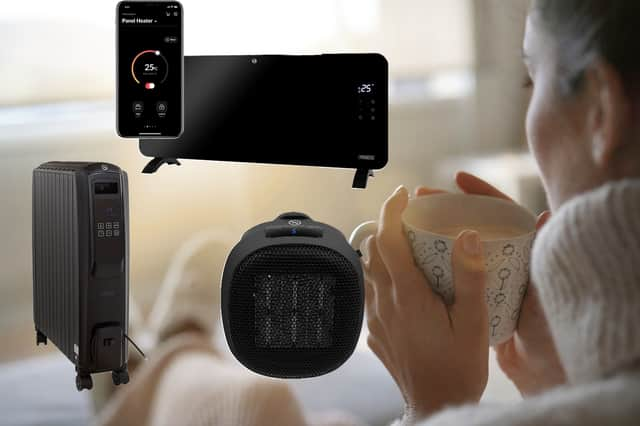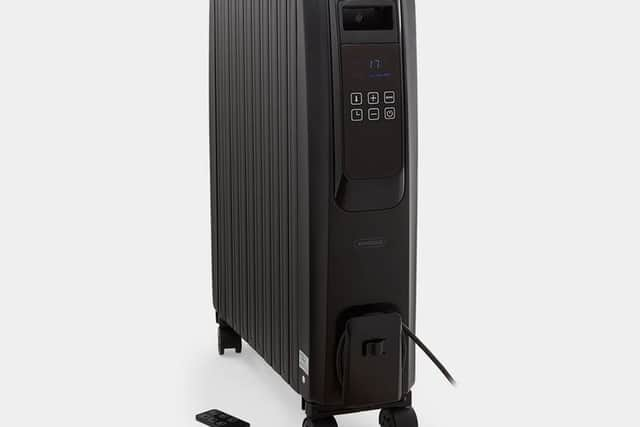Best portable heaters UK 2023: which type of heater is the cheapest to run?


This article contains affiliate links. We may earn a small commission on items purchased through this article, but that does not affect our editorial judgement.
With the current energy crisis hitting pockets left, right and centre, people are looking for ways to keep warm during the coming winter months without breaking the bank. While some sectors of British society can afford the unprecedented price hikes in electricity, gas and oil, there are hundreds of thousands who will need to find the best way to keep warm without spending a fortune in the process.
With that in mind, we’ve gathered together a quintet of hearty portable electric warmers that are among the cheapest to run. These portable heaters can be moved from room to room and don’t cost a fortune to buy.
Come on in, the room’s feeling toasty.
Best energy efficient heaters at a glance
- Best for style and efficiency: VonHaus 2500W Closed Fin Digital Oil Filled Radiator
- Best for value and efficiency: De’Longhi Dragon 4
- Best for aesthetics: Princess Smart Glass Panel Heater 1500W
- Best for a proximity heater: MeacoHeat 1.8kW Heater
- Best for caravans, boats and titchy spaces: Russell Hobbs RHPH7001 700W Compact Portable Black Ceramic Plug
How to choose a heater? Oil-filled radiator, or electric - which is right for me?
There are many different types of electric heater on the market but some are far more economical to run than others.
If you don’t own a gas or oil-fired household radiator system and you need to heat a whole room and keep it warm for an entire evening, an oil-filled radiator is arguably the most economical way to do it because it uses convection to heat cool air around it. The hot air it creates rises before permeating around the room.
Like any normal fitted radiator, an oil-filled radiator takes a while to warm up an average-sized room with the door closed – around 30 minutes before you feel any benefits – but because most models have a built-in thermostat, the moment the temperature in the room reaches the thermostat’s predetermined peak temperature setting, the heater will go into standby while still emitting a good dose of residual heat.
What do heaters cost to run?
Once the room temperature begins to drop, the thermostat automatically switches on the heat again. An average 1.5kW oil-filled heater will cost between 25p and 30p an hour to run which is about as cheap as it’s possible to go.
Alternatively, if aesthetics are of prime concern, perhaps consider a glass panel heater which can be mounted to a wall or, in most instances, moved around the home and stood on its removable legs. Glass panel heaters are also economical to run because they have high energy conversion efficiency and their radiant infrared waves heat up a room relatively quickly.
Finally, if you just need some short-term proximity heating, a ceramic blow heater with a motion sensor will suffice though even this type of heater will cost between 35p and 65p an hour to run.
Granted, electricity is nowhere near the cheapest way to fully heat a home but if you only require heat in certain rooms or right by your feet, then an electric heater like these we review below is far and away the best option short of wearing a 2.5 TOG onesie and a pair of merino wool mountaineering socks.
Stay warm for less this winter
For even more winter warmers for your home, check out our guides to the top weighted blankets, the best winter duvets for your bed, and also our advice on how to keep warm without having the heating on all day.
You can keep the heat in your house with these insulated curtains, and cut heating bills further with an energy-efficient dehumidifier to cut moisture levels in your house. In case of a power cut - these are the essentials you need this winter.


PROS Excellent performance Economic Adjustable thermostat Attractive design Pull-out wheels
